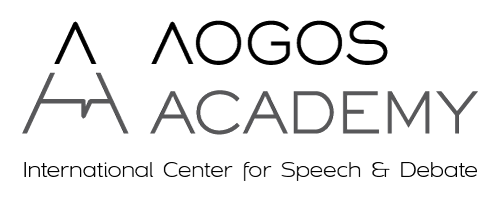Pathos
The lawyer, the politician, the teacher, the businessman, the scientist, the mother; we all, to varying degrees, need to communicate and inspire others with our words. We all know that speaking in front of others, arguing constructively and effectively, and expressing a point of view in a simple discussion are critical modern skills.
The sheer breadth and momentum of technological development in the last Demi century, the unpredicted and unprecedented Covid19 pandemic crisis, have revolutionised how we communicate, but while our messages can be heard faster and by a larger audience the quality of that message has deteriorated. With technological advancement comes passivity and reliance. With a move from letter writing, reading and note taking comes a loss of institutional memory on the value of those skills. The preservation and investment of speech and oral communication is a priority in maintaining and advancing human development and conscience.
The absence of basic democratic education has had a profound negative consequence on a political level in the world. People who cannot appreciate and deconstruct arguments or know to question the premise of a message have been and will continue to be swept away by shrewdly stirred sentiment and populism. Social media, a potential force of extraordinary positive change, has become a vehicle for sensation and fiction in place of reliable and accurate information. If we aspire to see a more democratic world, educating young and older people on the value of truthful and structured communication is an obvious and necessary channel through which the tide might be turned.
In reflecting on opportunities for change we must consider where we learn how to effectively and graciously communicate? We no longer grow up in communities which appreciate the company of others or teach around the “estia”; the social value in the beauty of storytelling and the excitement of critical and cordial disagreement. Although valued by schools and seen as essential to a modern communicator; public speaking, discussion and oral skills are not central to the curriculum of any educational system. Hence, there is an obvious, current, unmet global need between supply and demand for an institution where people can learn and practice these vital communication skills.
